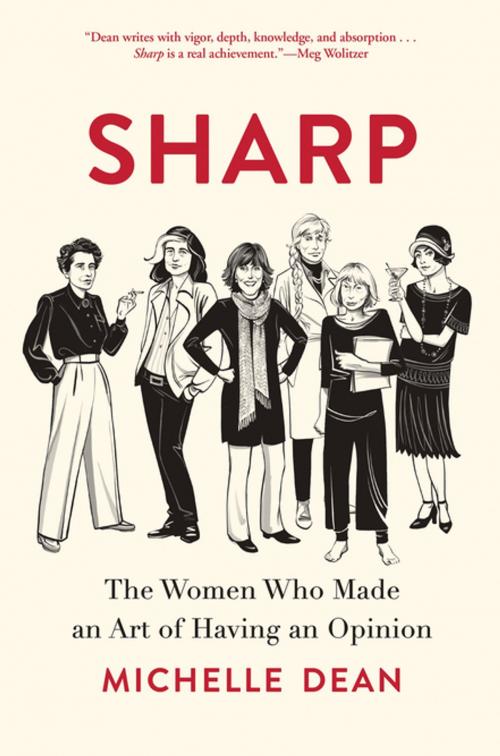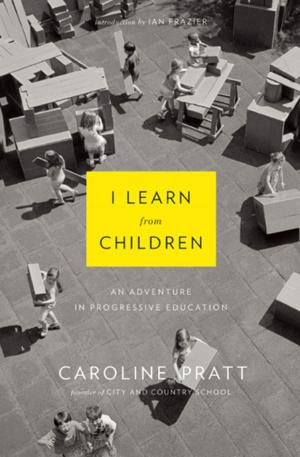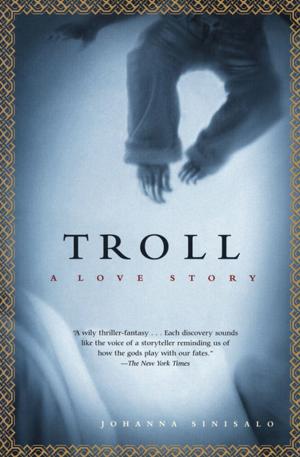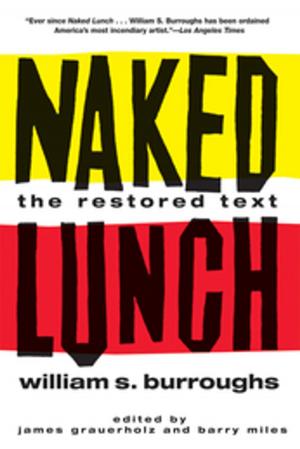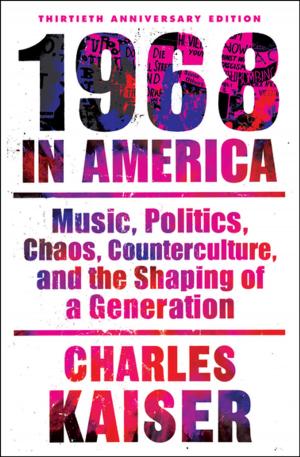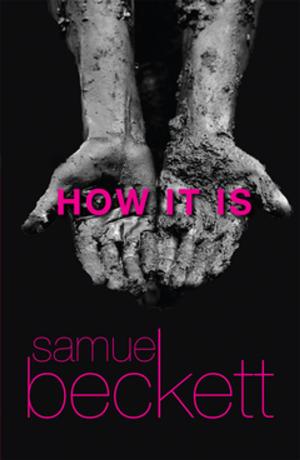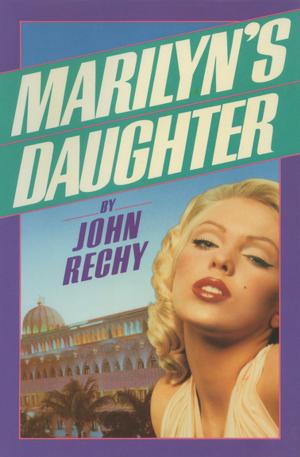Sharp
Nonfiction, Social & Cultural Studies, Social Science, Gender Studies, Women&, Biography & Memoir, Literary, Fiction & Literature, Literary Theory & Criticism| Author: | Michelle Dean | ISBN: | 9780802165718 |
| Publisher: | Grove Atlantic | Publication: | April 10, 2018 |
| Imprint: | Grove Press | Language: | English |
| Author: | Michelle Dean |
| ISBN: | 9780802165718 |
| Publisher: | Grove Atlantic |
| Publication: | April 10, 2018 |
| Imprint: | Grove Press |
| Language: | English |
The first book from one of America’s most promising emerging voices in literary journalism, winner of the National Book Critics Circle’s Nona Balakian Citation for Excellence in Reviewing (previous winners include Ron Charles, Kathryn Schulz, Parul Sehgal, and Daniel Mendelsohn) is sure to garner major review and feature attention.
In the tradition of Sarah Bakewell’s bestselling At The Existentialist Café, Sharp is an accessible but erudite history of ten women writers—Dorothy Parker, Rebecca West, Hannah Arendt, Mary McCarthy, Susan Sontag, Pauline Kael, Joan Didion, Nora Ephron, Renata Adler, and Janet Malcolm. These women are united by what Dean calls “sharpness”—the ability to make a precise and long-lasting observation through the written word, and in doing so claim a position of authority.
Both entertaining and engrossing, Sharp transports the reader into the literary milieu of New York in the mid-century, from meetings of the Algonquin Round Table to literary cocktail parties at which Hannah Arendt might rub shoulders with Mary McCarthy. From their first loves to their divorces, their financial struggles to their breakthrough successes.
We have reached out to writers including Rebecca Solnit, Margaret Atwood, Sarah Bakewell, Sheila Heti, Roxane Gay, Eula Biss, and others for blurbs and expect a strong positive reaction.
As questions of how women are published become more and more central to our literary conversation, Sharp provides an often dismaying and sometimes amusing history of this subject. Dean shows how women were often treated appallingly by their male counterparts (Norman Mailer’s troll-like review of The Group in the New York Review of Books is a good example) and portrays how writers like Susan Sontag or Joan Didion related to the feminist movement at the time. There are interesting parallels to be drawn which will help the book get coverage.
There is opportunity for potential bookstore display with the works of the writers included. The literary subject matter makes the book an ideal fit for publications from the New Yorker to the Paris Review to Literary Hub. There is perhaps more interest in the history of publishing now than ever before and this book is a powerful exploration of the patronizing and sexist and deeply financially unequal way these women working at the tops of their fields were often treated.
Strong potential academic outreach – the book is an ideal primer for readers who have not yet read any of the writers included and lends itself to course adoption.
Many of the writers who are the focal figures of Sharp worked at times in the world of film criticism and we will conduct outreach to film critics alongside.
The first book from one of America’s most promising emerging voices in literary journalism, winner of the National Book Critics Circle’s Nona Balakian Citation for Excellence in Reviewing (previous winners include Ron Charles, Kathryn Schulz, Parul Sehgal, and Daniel Mendelsohn) is sure to garner major review and feature attention.
In the tradition of Sarah Bakewell’s bestselling At The Existentialist Café, Sharp is an accessible but erudite history of ten women writers—Dorothy Parker, Rebecca West, Hannah Arendt, Mary McCarthy, Susan Sontag, Pauline Kael, Joan Didion, Nora Ephron, Renata Adler, and Janet Malcolm. These women are united by what Dean calls “sharpness”—the ability to make a precise and long-lasting observation through the written word, and in doing so claim a position of authority.
Both entertaining and engrossing, Sharp transports the reader into the literary milieu of New York in the mid-century, from meetings of the Algonquin Round Table to literary cocktail parties at which Hannah Arendt might rub shoulders with Mary McCarthy. From their first loves to their divorces, their financial struggles to their breakthrough successes.
We have reached out to writers including Rebecca Solnit, Margaret Atwood, Sarah Bakewell, Sheila Heti, Roxane Gay, Eula Biss, and others for blurbs and expect a strong positive reaction.
As questions of how women are published become more and more central to our literary conversation, Sharp provides an often dismaying and sometimes amusing history of this subject. Dean shows how women were often treated appallingly by their male counterparts (Norman Mailer’s troll-like review of The Group in the New York Review of Books is a good example) and portrays how writers like Susan Sontag or Joan Didion related to the feminist movement at the time. There are interesting parallels to be drawn which will help the book get coverage.
There is opportunity for potential bookstore display with the works of the writers included. The literary subject matter makes the book an ideal fit for publications from the New Yorker to the Paris Review to Literary Hub. There is perhaps more interest in the history of publishing now than ever before and this book is a powerful exploration of the patronizing and sexist and deeply financially unequal way these women working at the tops of their fields were often treated.
Strong potential academic outreach – the book is an ideal primer for readers who have not yet read any of the writers included and lends itself to course adoption.
Many of the writers who are the focal figures of Sharp worked at times in the world of film criticism and we will conduct outreach to film critics alongside.
